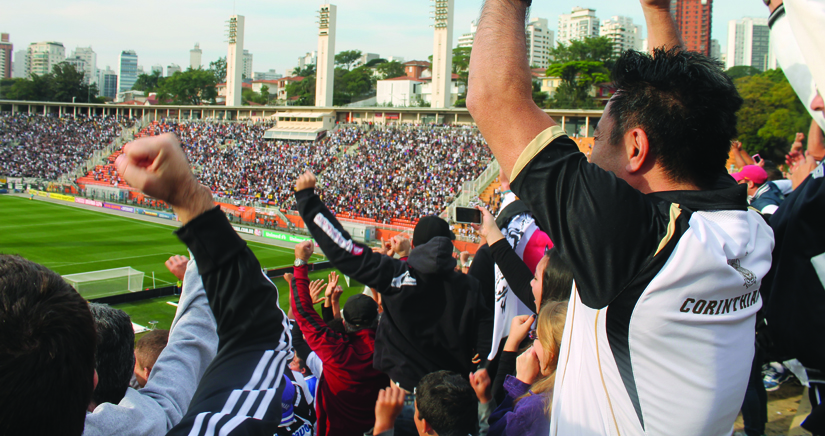In three months Brazil will be the host to one of the biggest events globally: the FIFA World Cup comes to the country where soccer is almost a religion across all social classes and ages. Is there anything that could go wrong in this setting? I did not think so and therefore was highly surprised by the numerous manifestations against the World Cup right before I left for my CEMS exchange in São Paulo in July 2013.
I spent the first week in the Northeastern city of Natal at my friend Deciara’s, whom I got to know years ago in Spain and was initially surprised by the fact that the housemaid («empregada») emptied my suitcase while I was at dinner and sorted all my travel books according to size and my clothes to colors. However, I became accustomed to the many employees doing tasks that one could normally do on their own as a person belonging to the middle class, such as putting your groceries into bags, parking your car in front of stores, cleaning shoes, or keeping parking spots at the street free. Due to the low labor costs – the minimum wage for an entire family is around 300 Swiss francs per month – many services are outsourced.
As Deciara is studying medicine, I joined her on a protest of doctors and nurses who were on the streets against insufficient working conditions and the proposals of President Dilma Rousseff. She had suggested fighting the shortage of doctors in the rural regions by either obligating graduates to work there for a low salary during two years or «importing» 6’6’000 doctors from Cuba, Portugal and Spain. There was of course a vivid debate going on whether Brazil should and actually can spend such an amount of money on infrastructure for the World Cup while shortchanging investment in health care and education. A significant part of society has no access to these services after all, even though public education and the Sistema Único de Saúde (SUS) are for free. Whoever can afford the better but expensive private system, does so. I witnessed that inequality is a big topic in Brazil wherever you go. Following this logic, our CEMS introduction week was all about Social Entrepreneurship; we were meeting entrepreneurs who want to make a difference by solving people’s social problems but who want to still be able to make a living of it. The HSG Hub São Paulo continues to expand its research platform on Impact Investing (investments focusing simultaneously on social or environmental and financial return) by working closely with entrepreneurs, accelerators, academics and investors. On top of that, one of my courses at my exchange university, the Fundação Gétulio Vargas, dealt exclusively with the idea of Social Business and marketing for low-income population – which comprises around 45 per cent% of the 185 million inhabitants who are being discovered as a target customer group by large companies. I can definitely say that the exchange semester through CEMS Master in International Management has opened my eyes for the problems and business opportunities of emerging countries that we in the Western World are not yet fully aware of.
Brazil is bridging the gap between third and first world every day. Can such a country be the host of the World Cup, which requires huge expenses on infrastructure, rather than focusing on urgent topics such as reducing inequality? The constant news about crumbling football stadiums, corruption and delays in construction do not help in fostering the desired reputation abroad.
Having talked to many Brazilians from taxi drivers to professors and my dance teacher, I have heard the entire range of opinions on whether Brazilians are looking forward to the event or if the country is ready organization-wise. For me, as long as there are open-minded and hospitable people who start talking to foreigners on the Metro and show them around for about five hours just to practice their English skills again (the ability to speak foreign languages is rare in Brazil), I have no doubts that the World Cup has the potential to be an awesome experience for guests and locals.



